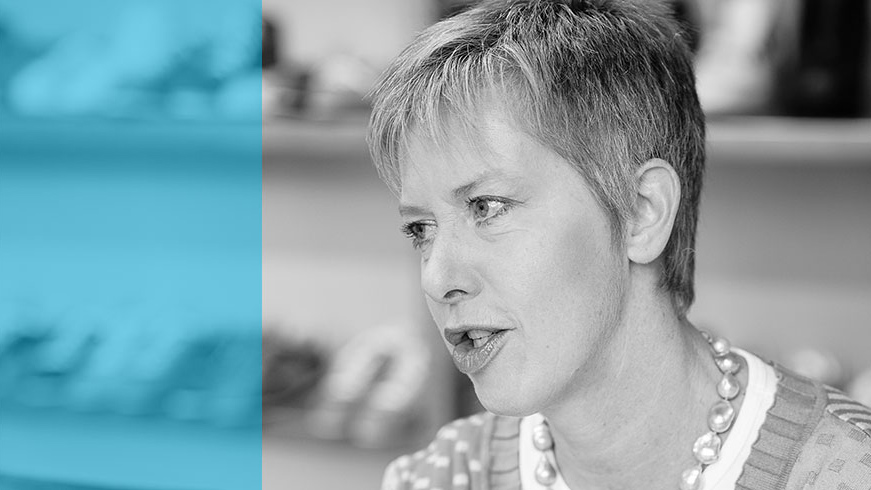echo-interview with Barbara Artmann, owner and CEO of Künzli SwissSchuh AG
elipsLife-echo: Künzli is primarily known for its orthopedic footwear. A few years now, you also launched a range of life-style shoes. How do you manage the balancing act between these two very different customer groups?
Barbara Artamnn: The origin of all Künzli products is sports footwear. Our high-top shoes were also derived from the sports sector where they provide vital ankle support, for example in handball. Reinforced footwear, designed originally to be protective, later developed a therapeutic function in the medical field. Today, the Künzli Ortho® footwear range is a highly regarded medical aid. Sneakers, on the other hand, are an offshoot of the sports shoe. So the Künzli Classic line of fashion shoes and the Künzli Ortho® range of surgical footwear have the same origin, the sports shoe namely. Of course, these ranges of shoes require very different marketing strategies. Whereas our sneakers sell through fashion outlets, our orthopedic footwear is distributed via specialist retail channels.
Where does your company derive the necessary knowhow to be able to manufacture high-quality orthopedic footwear?
Over time, we have nurtured our own footwear savvy in-house. Since Switzerland has not provided vocational training in shoemaking for ten years now, we are obliged to retain our own specialist knowledge, to cultivate this knowhow and to pass it on to our employees. And we've been pretty good at it, since we've meanwhile built up a very impressive body of footwear knowledge and skills. On the surgical footwear side, we have specialist knowledge in exercise science. The head of our orthopedic department is a fully trained professional in this field. We also cultivate intensive research and development cooperation with doctors. We are very fortunate that Switzerland is the home of the best orthopedic doctors in the world and that with many of them we are in constant, close dialogue.
How important is "Swissness" for your company?
Our Swiss identity is enormously important for us. Right from the outset, I focused on the question whether we could manufacture our shoes here at home rather than in Asia, like all the others do. For eleven years we've been doing just that in Switzerland. Our domestic manufacturing base is at the heart of Künzli's identity. It's in our DNA. We all take pride in the fact that we're doing it differently to other companies. We have successfully positioned ourselves in niche markets. We couldn't survive in mass markets because there the dominant factor is the price. With our sneakers we are established in a small luxury niche, and with our surgical and special-purpose footwear in a market where hardly any competitor can match our expertise. For the big players, our market would be too small, but for us it's just right. Actually, I'm not such a big fan of "Swissness." This can be a t-shirt made in Asia with the Swiss flag printed on the front. I would prefer the term "Made in Switzerland."



